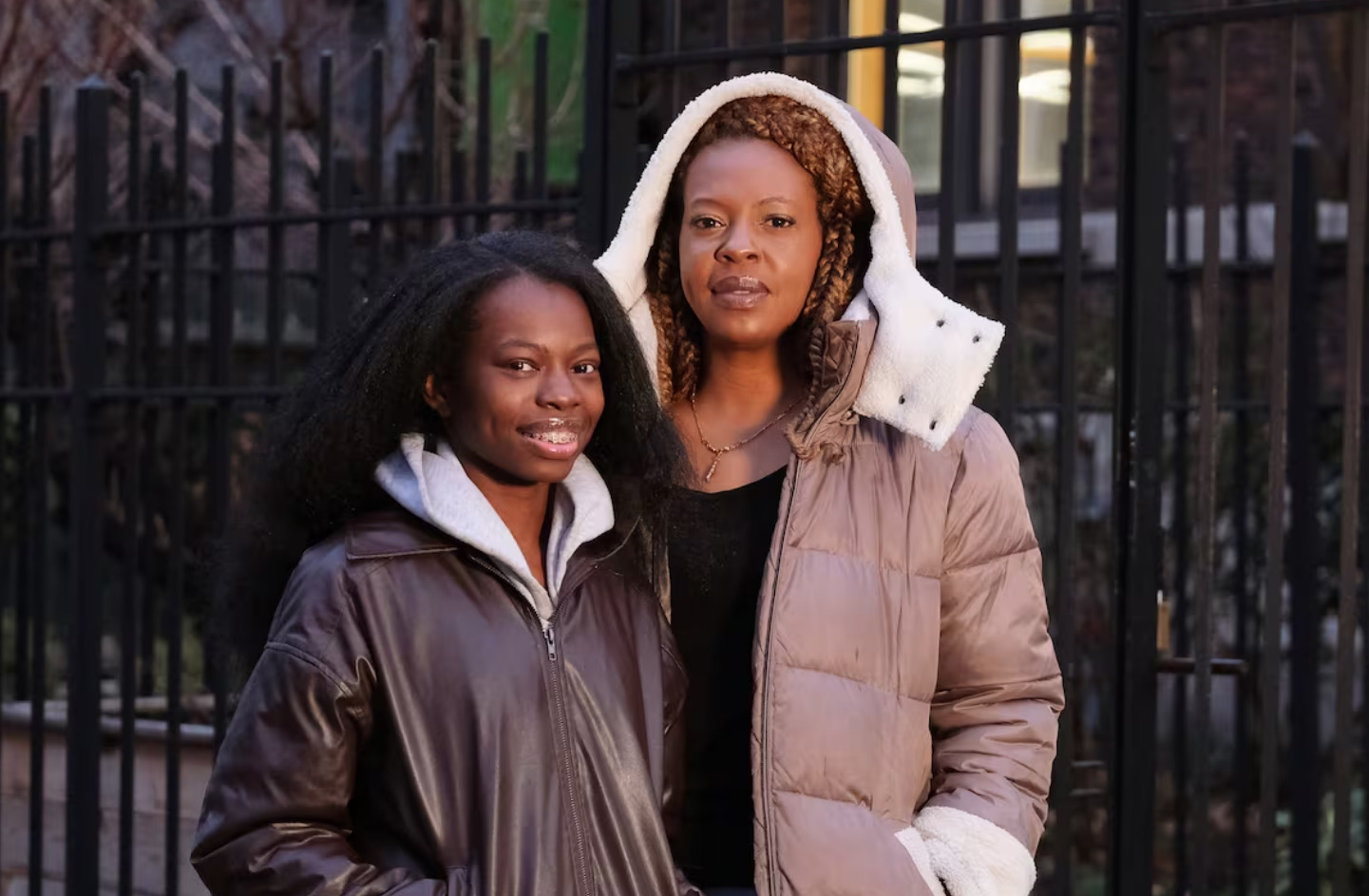This story was originally published by Chalkbeat. Sign up for their newsletters.
Derry Oliver was in fifth grade when she first talked to her mom about seeing a therapist.
She was living in Georgia with her uncle and grandparents while her mom was in New York scoping out jobs and apartments ahead of moving the family. It was a rough year apart. Oliver, now 17 and a senior at Cobble Hill School for American Studies in Brooklyn, was feeling depressed. A school staffer raised the idea of a therapist.
Oliver’s mom, also named Derry Oliver, questioned the school’s assessment and didn’t give consent for therapy. “You’re so young,” the mom recalled thinking. “There’s nothing wrong with you. These are growing pains.”
The issue boiled over again during the COVID-19 pandemic when the younger Oliver, struggling with the isolation of remote learning, reached out to her school for help. School-based mental health professionals like social workers can provide some counseling without parent permission. But in New York, referring a student to more intensive therapy almost always requires a parent’s agreement. In Oliver’s case, that led to more conflict.
“It was very emotional for both of us because I understood her frustrations and fears,” the younger Oliver recalled. “But at the same time it’s sometimes best for your child to be able to access this rather than hold it away from them.”
Access to therapy is controversial
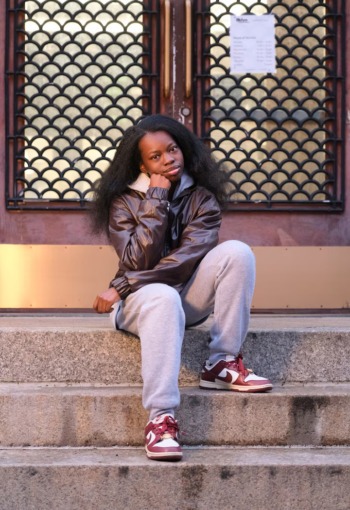
Laylah Amatullah Barrayn/Chalkbeat
Derry Oliver, 17, believes that therapy could be helpful.
As shools across the country respond to a youth mental health crisis accelerated by the pandemic, many are confronting the thorny legal, ethical, and practical challenges of getting parents on board with treatment. The issue has become politicized, with some states looking to streamline access as conservative politicians elsewhere propose further restrictions, accusing schools of trying to indoctrinate students and cut out parents.
But for families like the Olivers, the decision to start a child in therapy is often deeply personal – bringing up cultural and generational divides, as well as diverging understandings of mental health.
Differing perspectives on mental health aren’t new for parents and kids, but more conflicts are emerging as young people get more comfortable talking openly about mental health and treatment becomes more readily available, especially with the growth of telehealth and online counseling.
“It’s this disconnect,” said Chelsea Trout, a graduate student in social work at NYU doing her training at a charter school in Brooklyn. “The kids are all on TikTok or the internet and understand therapy speak and that this is something that could be helpful for their mental health and are interested in, but don’t have the explicit buy-in from their parents.”
Research suggests that having to obtain parental permission can be a significant barrier to teens accessing treatment.
Access to therapy can be critical, particularly for LGBTQ youth, who are significantly more likely than their peers to attempt suicide, and whose parents may not know about or approve of their sexual orientations or gender identities. Dr. Jessica Chock-Goldman, a social worker at Bard Early College High School in Manhattan, said she’s seen many cases where mental health issues turn severe in part because teens didn’t get earlier access to therapy.
“A lot of kids would be hospitalized because of suicidal ideations or intent because the preventative work didn’t come into fruition,” she said.
Laws about consent vary widely by state
The question of when young people can consent to mental health treatment is getting increasing attention from policymakers. States like California and Colorado have recently lowered the age of consent for treatment to 12. But in some states like North Carolina, the issue has been swept up into larger political debates about parents’ input on curriculum and the rights of transgender students.
Mental health treatment for teens is almost always more effective when parents are on board.
There’s also a huge obstacle outside the law: Therapy is rarely free, and paying for it or submitting insurance claims often requires parental support.
Teens in New York can consent to therapy starting at age 16, and a provision allows doctors to authorize treatment for younger children if they deem it in their best interest. But there are caveats: The consent laws only apply in outpatient settings licensed by the state, and they don’t extend to the prescription of medications.
New York City Mayor Eric Adams recently announced a partnership with the platform Talkspace to provide free online counseling to all city teens, through a program known as NYC Teenspace. It doesn’t ask for insurance, but parental consent is required, “except in the case of special circumstances,” according to the program’s website.
Apart from the legal and ethical considerations, clinicians noted that mental health treatment for teens is almost always more effective when parents are on board.
“In an ideal world, absolutely I would love more access to therapy for these kids with the hope they can talk to their parents about what’s happening,” said Chock-Goldman. “Because I believe nothing changes unless you change a family system.”
A mom and daughter split on therapy
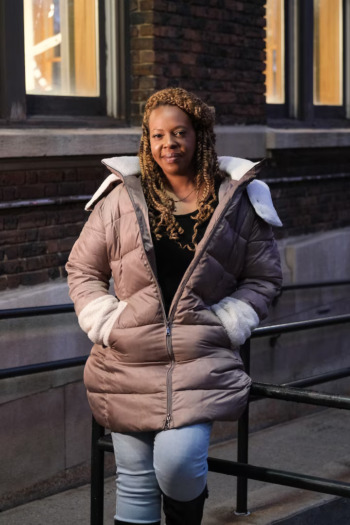
Laylah Amatullah Barrayn/Chalkbeat
Derry Oliver, 36, is wary of her daughter doing therapy.
For the two generations of Oliver women, their divergent views of therapy are rooted in very different upbringings.
The elder Oliver, 36, was raised in Georgia in the 1980s and ‘90s, when people “didn’t speak on mental health a lot.”
As a kid, Oliver knew some people in therapy, but mainly because “they experienced something extremely traumatic.”
As she got older, Oliver had her own encounters with therapists. She was diagnosed with depression and prescribed medication that made her feel like a “zombie,” she said.
Oliver has also felt the sting of being labeled as “aggressive” simply for expressing her emotions as a Black woman – a reality that’s made her reluctant to confide in therapists who aren’t themselves Black women.
She’s concerned that allowing her daughter to see a therapist might lead to a diagnosis that brings the same kind of medication she so despised.
“Baby, there’s nothing wrong with you,” Oliver tells her daughter. “You don’t have any mental issues. You don’t need to be put on anyone’s medication.”
The younger Oliver sees things very differently. She grew up with friends who saw therapists without experiencing acute trauma. And she found numerous examples on platforms like TikTok and Instagram of teens with similar stories who had benefited tremendously from therapy.
Statistics do show a racial divide and barriers are often particularly high in immigrant communities.
“You don’t even have to have anxiety or depression and I don’t even know if I do or not,” she said. “But if you feel as if something isn’t right or okay with you, then I think that’s when a person should be able” to access therapy.
For Oliver and her mom, years of conversations have yielded some progress, but not as much access to therapy as the younger Oliver wants.
Several years ago, the Olivers agreed on a compromise. They found a Black female therapist, and the elder Oliver agreed her daughter could start therapy – as long as she sat in on the sessions. But the therapist changed jobs after about a month, and Oliver hasn’t seen another therapist since.
“It has to be someone trustworthy,” the elder Oliver said of a potential therapist for her daughter.
New initiatives are in the works
Trout, the school social worker in training at the Brooklyn charter school, said she’s encountered a number of parents who, like Oliver, don’t trust the school’s recommendations, and wonder why their child would need therapy if they’re succeeding academically and socially.
“If we’re thinking about predominantly Black and brown communities, if your interactions with social workers or mental health services or anything in that realm thus far have not been positive,” she said, “how could you trust them with your kids?”
Statistics do show a racial divide. In 2021, 14% of white children reported seeing a therapist at some point during that year, compared to 9% of Black children, 8% of Hispanic kids, and only 3% of Asian American children, according to a survey from the Centers for Disease Control.
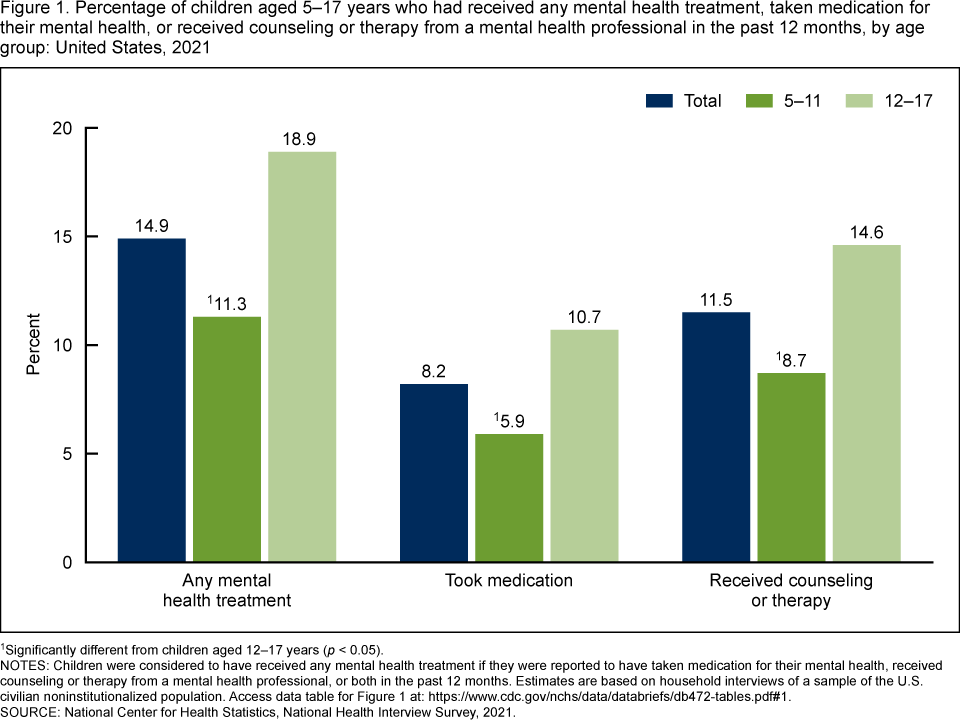
The barriers are often particularly high in immigrant communities, where there can be a strong stigma, or simply a lack of knowledge about “what therapy or counseling looks like or means,” said Cindy Huang, a child psychologist and professor at Columbia University Teachers College. Huang was recently awarded a grant to launch a pilot program to increase access to mental health treatment for youth at risk of suicide in Manhattan’s Chinatown.
Advocates and experts are continuing to push policymakers to give young people more freedom to consent to therapy without parental approval.
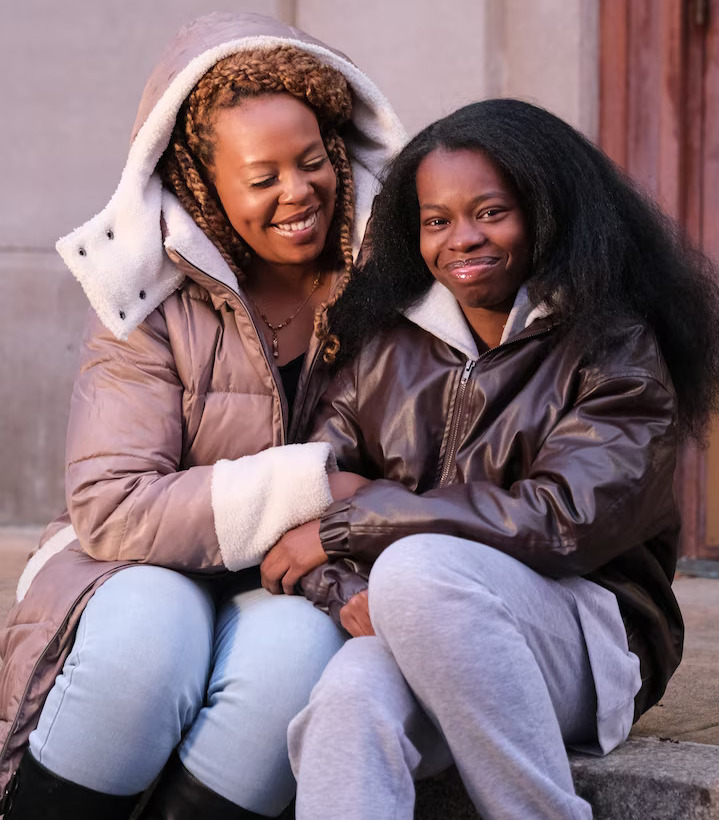
Laylah Amatullah Barrayn/Chalkbeat
Derry Oliver, 36, said her own experience has shaped her views on therapy. Her daughter, Derry Oliver, 17, wants more access to therapy.
There’s a bill pending in New York’s state Assembly that would give minors more freedom to consent to their own health care, including therapy.
Without access to therapy, the younger Oliver has sought advice about managing her emotions through friends, school social workers, and the internet. But she’s convinced she could do a lot more with consistent professional help.
Oliver has already gotten into a number of colleges — to her mom’s enormous pride — and is weighing her options for next year.
One thing she’s considering: how much access they offer to therapists.
***
Michael Elsen-Rooney is a NYC-based reporter for Chalkbeat New York, covering NYC public schools. Previously. Elsen-Rooney covered education for the New York Daily News, Columbia Journalism School’s Teacher Project and The Hechinger Report.
Chalkbeat is a nonprofit news site covering educational change in public schools.
A version of this story is being co-published by the Associated Press.


